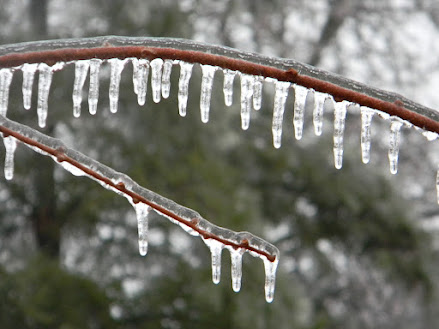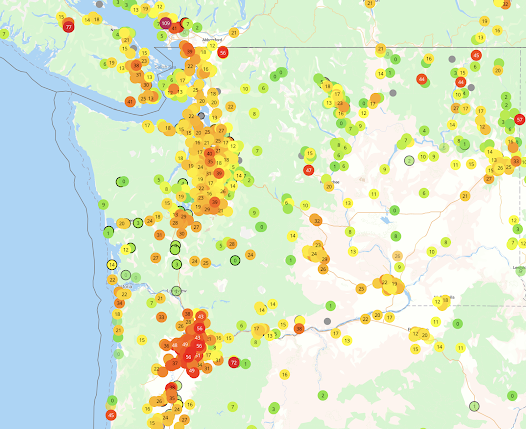Freezing Rain--Why and Where Does It Occur? And A Dry Week Ahead for the Northwest.
The headlines today talk about the threat of freezing rain along the East Coast.
But the Pacific Northwest is no slacker in the freezing rain department! We have world-class freezing rain in the Columbia Gorge, Northwest Washington around Whatcom County, and particularly in the Columbia Basin of eastern Washington.
As noted in my previous blog, freezing fog is often experienced in the Columbia Basin as well. A map of freezing rain frequency across the U.S. shows that eastern Washington is a major player (below). The eastern U.S. get freezing rain when fronts are positioned over the Northeast or Midwest, with cold air to the north. This is the situation occurring today.
My podcast today describes how and why freezing rain exists.....and describes the weird situation of liquid water occurring under subfreezing temperatures.
And my podcast also describes the uber-dry conditions of the next week...and even the potential for some sun!
To listen to my podcast, use the link below or access it through your favorite podcast service.







Comments
Post a Comment